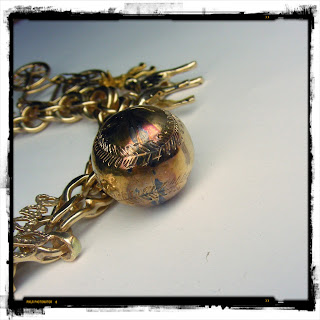I was given a gold necklace that has started to change colour after wearing it a couple of times. I was told that some people can cause gold to rust/corrode and I am worried that if I try to clean the necklace I will cause it to rust even more. If it is rusting, it must be losing metal and it must be getting weaker. How can I take care of this necklace if I am causing this to happen, just by wearing.
- Amanda L.
Please rest assured Amanda that gold does not corrode and you will not 'eat' away at your necklace through simple wear. Let's first define what rust is - it is the formation of iron oxide caused by a reaction of iron and oxygen in the presence of water - it is metal turning into dust. Gold in it's pure form is one of the most non-reactive metals on our planet, meaning whether in the presence of water, oxygen, or even acid - gold remains unchanged.
The majority of jewellery however, is not made from pure gold - it is created using various alloys depending on the karat and colour. In the example of 18k yellow gold, 75% of the alloy is made from pure gold whereas the other 25% is made up of silver and copper - both of which are susceptible to tarnishing in the presence of air as well as the various chemicals on the surface of our skin. The change in colour you are seeing is in actual fact the alloy metals (copper and silver) oxidizing on the surface - darkening the necklace to a orange-brown colour. The lower the karat of gold, the more alloy, and the more noticeable the colour change will be as the item tarnishes. Tarnishing differs from rusting because only the surface is effected - whereas rust or corrosion will penetrate into the metal itself.
This is an example of surface discolouration on jewellery - tarnishing.
A polishing cloth or cleaning liquid will remove the tarnish by removing the oxidized layer from your necklace - a negligible and unmeasurable amount of material that would in no way jeopardize the strength and wearability of the piece. Having the piece professionally cleaned and polished by a jeweller will remove more materials than these processes, but not enough to jeopardize the piece if it was in good condition to begin with.
After a quick clean and polish, the patina and dark tarnish on this bracelet had disappeared.
The bottom line - jewellery is meant to be worn and enjoyed, not to be kept in a jewellery box. If you have any concerns, as your jeweller.
Have a question? Email them to us at service(at)18karat.ca with the subject line Ask a Jeweller. We will answer your questions here, every Thursday.



No comments:
Post a Comment